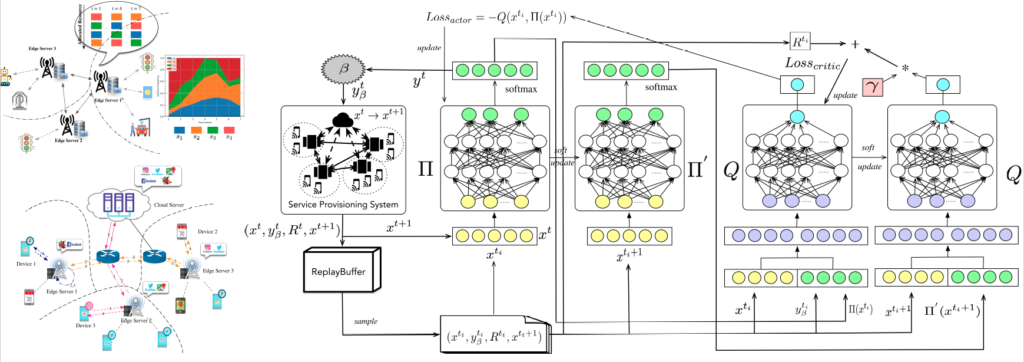Dynamical Resource Allocation in Edge for Trustable Internet-of-Things Systems: A Reinforcement Learning Method
Authors: Shuiguang Deng, Zhengzhe Xiang, Peng Zhao, Javid Taheri, Honghao Gao, Jianwei Yin, Albert Y. Zomaya
Abstract:
Edge computing (EC) is now emerging as a key paradigm to handle the increasing Internet-of-Things (IoT) devices connected to the edge of the network. By using the services deployed on the service provisioning system which is made up of edge servers nearby, these IoT devices are enabled to fulfill complex tasks effectively. Nevertheless, it also brings challenges in trustworthiness management. The volatile environment will make it difficult to comply with the service-level agreement (SLA), which is an important index of trustworthiness declared by these IoT services. In this paper, by denoting the trustworthiness gain with how well the SLA can comply, we attempt to encode the state of the edge-computing based service provisioning system and the resource allocation scheme, and then we model the resource adjustment for services as a Markov Decision Process (MDP) so that the newly used resource allocation scheme after adjustment can be evaluated by the trustworthiness gain of the next time period. Based on these, we develop a simple but effective simulator as the training environment of the edge computing based service provisioning system and then get a trained resource allocating policy with the help of the reinforcement learning method applied on it. The trained policy can always try to maximize the services’ trustworthiness gain by generating appropriate resource allocation schemes dynamically according to the system states. By conducting a series of experiments on the YouTube network visiting dataset, we show that the edge service provisioning system using our approach outperforms other baselines from the perspective of trustworthiness management.

2021 Outstanding paper award of IEEE Transactions on Industrial Informatics
Read the full paper at: https://ieeexplore.ieee.org/document/9001216

